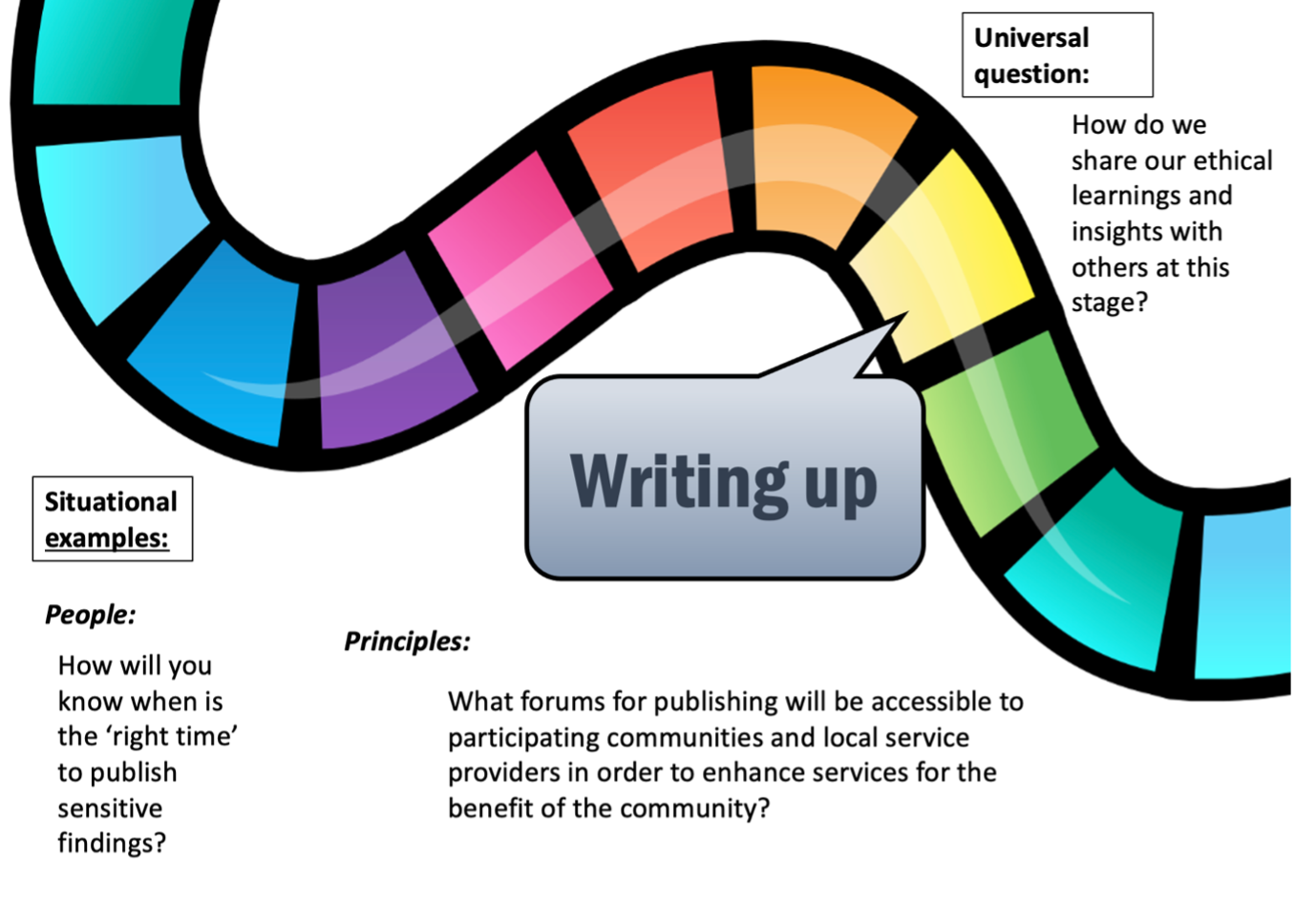|
Stage 9 WRITING UP |
The team will write up the findings in a report or paper. They will often be required to submit this to the funding body within a particular deadline. How people make of research findings will often differ, even within a research team. Presenting findings in different ways can have significant ethical implications. |
|||
|
|
||||
|
Being alert to ethical dilemmas |
||||
|
To whom and for whom do we write? How can our paper be interpreted and used?
|
Supporting considerations:
|
|||
|
Working towards solutions |
||||
|
Place |
People |
Principles |
Precedent |
|
|
Be clear about the context in which this paper will be read. You may consider when is the ‘right time’ to publish sensitive findings, or the right forum. For example, in a scenario of political instability, can your paper be used by any of the parties for their own benefit or to support a punitive response toward participating communities?
|
Discuss with your team and with local partners, the risks of publications and the potential benefits for all stakeholders and particularly for participating communities. For example, will our findings be used to support the development of punitive policies? Being mindful of this can helpfully influence how you write your paper. Discuss with your team the process of construction of papers for publication including authorship order that reflects the contribution of each in the project. Use journal guidelines for authorship to help shape these conversations. Thank and acknowledge all those who have supported the project in ways that do not warrant authorship. Be generous. |
There is a strong bias toward publishing in high-impact journals written in English. These are accessible mainly to other researchers in English speaking countries. Part of your ethical decision-making is around how to publish in places that will also be accessible to participating communities and by local service providers who may be able to use the findings to enhance services for the benefit of the community. |
Find out about the type of audience that reads the journals in which you are thinking of publishing your work. Decide the media that best matches your goals and your target audience. Create a precedent for ethical practice by including meaningful discussion of your ethical challenges and solutions in your paper. This can also be provided as feedback to ethical committees to guide future research. |
|
Body
